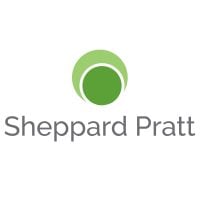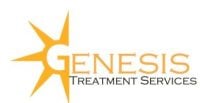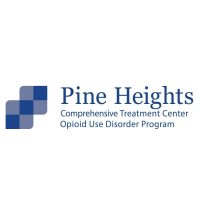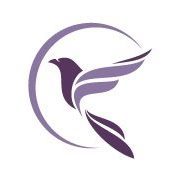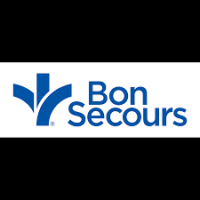Baltimore Crisis Response
Drug Rehab Center in Baltimore, Maryland
Baltimore Crisis Response offers evidence-based treatment for alcoholism, opioid addiction, substance abuse, dual diagnosis, drug addiction, and mental health, with a focus on individualized care and a variety of treatment options including detoxification, rehabilitation, inpatient, aftercare, and residential programs.
About This Baltimore, MD Facility
Baltimore Crisis Response provides services to individuals struggling with Alcoholism, Opioid Addiction, Substance Abuse, Dual Diagnosis, Drug Addiction, and Mental Health in Baltimore, MD. Founded in 1992, Baltimore Crisis Response offers a variety of evidence-based treatment methods and comprehensive care. Treatment options provided by Baltimore Crisis Response include detoxification, drug rehabilitation, dual-diagnosis, and inpatient, aftercare, and residential programs.
The staff at Baltimore Crisis Response focuses on a person-centered and individualized approach to treatment, utilizing methods such as 12-Step Facilitation, Cognitive Behavioral Treatment (CBT), Group Therapy, and Trauma Therapy. In order to ensure the best possible outcomes for their clients, Baltimore Crisis Response also provides education and support regarding HIV/AIDS, Hepatitis, and other health issues. In addition, they offer aftercare and discharge planning to ensure that their clients have the support they need to maintain their sobriety and recovery.
Genders
Ages
Modality
Additional
Conditions and Issues Treated
Recovering from any type of substance abuse is a long process, but it is one of the most worthwhile and life changing events any addicted person will ever go through. This is a combination of detoxing the body, rehabilitation, and recovery. There is also therapy, aftercare, and support during the entire process.
While substance abuse can take over a person’s life, it is something that can also be overcame by professionals at Baltimore Crisis Response in Baltimore, MD
With so many people struggling with opioid addiction, opioid addiction treatment is more critical than ever before. Patients often take opioids when they face a painful injury. When someone begins taking opioids such as Vicodin or oxycodone differently than how the medications were prescribed, this points to opioid addiction.
Stopping these types of medications abruptly is not safe. That is where opioid addiction treatment at Baltimore Crisis Response in Baltimore, MD comes in. Most opioid addiction treatment facilities start with detox and move to rehabilitation services while providing medical support during the process.
Getting over an opioid addiction takes time and determination, but with the right support and resources, those struggling with opioid addiction can recover and move forward with their lives.
Addiction is often caused by an underlying issue. Mental illnesses like schizophrenia, bipolar disorder or anxiety disorder could lie at the root. A dual diagnosis by Baltimore Crisis Response aims to treat the addiction as well as the cause of the addiction. This ensures the patient will not fall back on old ways after treatment is complete.
Levels of Care Offered
This center offers a variety of custom treatment tailored to individual recovery. Currently available are Aftercare Support, Detox, Drug Rehab, Dual-Diagnosis, Inpatient, Residential, with additional therapies available as listed below.
Detox is a drug rehab process that begins before the actual drug rehab treatment. It is used to remove any residual toxins left in your body (and brain) after using drugs, and it is used with the intent to help you or your loved one complete drug rehab.
If you are addicted to opiates like heroin, methadone, or prescription painkillers, you will detox with medication. This is because the withdrawal symptoms are often more intense and uncomfortable for an opiate addict than for someone who has abused or is dependent on other drugs, like cocaine.
Detox alone will not make you stop using drugs; it is a process that allows you or your loved one to get ready for the next step of rehab.
Residential treatment programs are those that offer housing and meals in addition to substance abuse treatment. Rehab facilities that offer residential treatment allow patients to focus solely on recovery, in an environment totally separate from their lives. Some rehab centers specialize in short-term residential treatment (a few days to a week or two), while others solely provide treatment on a long-term basis (several weeks to months). Some offer both, and tailor treatment to the patient’s individual requirements.
Aftercare support plays an important role when sustaining a patient’s full recovery at Baltimore Crisis Response. Patients also receive assistance in making living arrangements in halfway houses. Career counseling is available for those who want a fresh start. There are also local community programs in Baltimore, MD such as Alcoholics Anonymous.
Baltimore Crisis Response‘s Therapies & Programs
Individual professional counseling or individual therapy refers to the one-on-one interaction between a patient and his or her counselor. Individual therapy allows for more privacy, one that group interactions can’t provide. Therefore, it becomes easier for a person to unload and become more open to his or her counselor.
Another benefit of individual therapy at Baltimore Crisis Response in Baltimore, MD is that all sessions aim to speed up a single person’s progress. It makes it easier for the counselor and the patient to deal with the central issues, which are likely the culprits of substance addiction.
Once the roots of the problems are addressed, it becomes less challenging for a recovering patient to maintain sobriety and brush off temptations.
In group therapy, the patient undergoes sessions with other patients dealing with similar problems under the guidance of a trained counselor. The members of the group interact with each other and talk freely about their issues. The recovery of members of the group from the problems that they face gives the patients confidence that they can also overcome their addiction.
Group therapy at Baltimore Crisis Response reduces the feeling of loneliness and improves the coping skills of the patients. Group therapy provides patients with continuous feedback from other members. The group dynamics ensure that members start having some structure and routine in their lives.
Cognitive behavioral therapy (CBT) is a way of addressing concerns through talking. Talking through issues can identify sources of discomfort or unhealthy thoughts. CBT is a healthy way Baltimore Crisis Response addresses some behaviors which may be bringing unintended consequences in a persons life.
The 12 step program is the treatment method used by Alcoholics Anonymous, but it can apply to any type of addiction. It outlines the 12 steps addicts should take on the path to recovery. Steps include admitting you have a problem and making the decision to turn your life around. A belief in a higher power and making amends to others are also part of the program.
Patient Experience
Experiential Therapy at Baltimore Crisis Response
Experiential therapy can involve acting, props, arts and crafts, animal care or other tools. It can help revisit and heal from past traumas. Trust between the therapist at Baltimore Crisis Response and individual is important for success and grown over the stay.
Payment Options Accepted
For specific insurance or payment methods please contact us.
Additional Details
Specifics, location, and helpful extra information.
Baltimore, Maryland 21229 Phone Number(410) 433-5255 Meta DetailsUpdated November 25, 2023
Staff Verified
What else do people call Baltimore Crisis Response?
People have occasionally also searched for “Baltimore Crisis Response - Medical Detox in Maryland”
Patient Reviews
There are no reviews yet. Be the first one to write one.
Baltimore, Maryland Addiction Information
For the past decade, Maryland's rate of drug use and abuse has significantly increased. The overdose rate is currently higher than the national average. This epidemic is due to the many industries where manual labor is required. As soon as prescription opioids were more readily accessible a large part of manual workers started using–and eventually abusing–the painkillers.
According to recent statistics, there are around 33,000 people who are addicted to drugs in Baltimore. Heroin-related overdose deaths are quite high in Baltimore, at 837 per 100,000 residents in 2016. Baltimore's most commonly abused drugs include heroin, cocaine, and marijuana. The people of Baltimore are friendly and welcoming, and there's always something going on. If you're looking for a place to start fresh, Baltimore is the perfect place.
Treatment in Nearby Cities
- Clinton, MD (37.7 mi.)
- Fallston, MD (22.2 mi.)
- Phoenix, MD (16.3 mi.)
- Silver Spring, MD (26.8 mi.)
- Halethorpe, MD (3.8 mi.)
Centers near Baltimore Crisis Response
The facility name, logo and brand are the property and registered trademarks of Baltimore Crisis Response, and are being used for identification and informational purposes only. Use of these names, logos and brands shall not imply endorsement. RehabNow.org is not affiliated with or sponsored by Baltimore Crisis Response.




